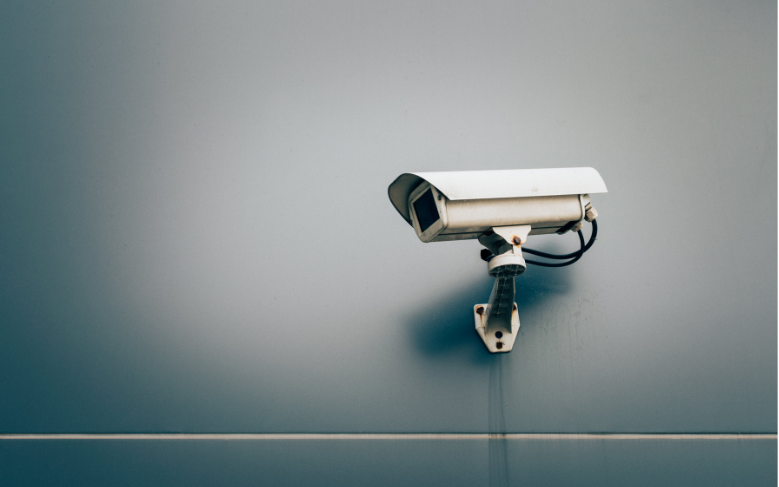Complete Guide to CCTV Systems: Enhance Your Security with Advanced Surveillance Technology
Introduction to CCTV Systems
In today’s world, security is paramount. Whether you’re protecting your home, office, or business, installing a CCTV system can provide peace of mind and an extra layer of protection. Closed-circuit television (CCTV) systems are designed to offer 24/7 surveillance, ensuring you can monitor your property in real-time and access recorded footage when necessary. From dome cameras to bullet cameras, and network cameras, CCTV systems come in various configurations to meet diverse security needs. This guide will help you understand the benefits of CCTV surveillance, key features to look for, and how to choose the best system for your specific requirements.
What is a CCTV System?
A CCTV system consists of cameras and recording equipment that work together to monitor a property. Unlike regular broadcast television, the footage from a CCTV camera is transmitted to specific monitors or devices, making it a private and secure way to monitor activity.
CCTV systems are commonly used in:
- Residential homes to prevent break-ins and monitor property.
- Businesses to ensure safety, prevent theft, and provide evidence in case of incidents.
- Public spaces for security and law enforcement purposes.
Benefits of CCTV Surveillance
1. Crime Prevention
The most significant advantage of CCTV systems is the deterrent effect they provide. Criminals are less likely to target a property that has visible security cameras. Knowing they’re being recorded can prevent potential threats before they occur.

2. 24/7 Monitoring
CCTV systems provide round-the-clock surveillance. Even when you’re not around, you can rest easy knowing that your property is being monitored for suspicious activity. Many modern systems offer remote viewing, allowing you to check footage from anywhere using your smartphone or computer.
3. Evidence Collection
In the unfortunate event that a crime does occur, CCTV footage can be invaluable as evidence. Whether it’s a theft, accident, or vandalism, having recorded video footage can help law enforcement and insurance companies resolve the situation quickly.
4. Remote Access and Monitoring
Many CCTV systems now offer cloud-based solutions or mobile apps, allowing users to access live video feeds and recorded footage from virtually anywhere. This remote access ensures that you can monitor your property even when you’re not on-site.
5. Peace of Mind
Knowing that your property is continuously being monitored provides peace of mind, whether you’re at home or away. CCTV systems allow you to check in on family, employees, or assets without worry.
Types of CCTV Cameras
CCTV systems come in various types of cameras, each designed for specific surveillance needs. Here are some of the most popular options:
1. Dome Cameras
Dome cameras are compact and discreet, often used in commercial and residential settings. They are mounted on the ceiling and are ideal for monitoring large areas. Due to their design, dome cameras are less likely to be tampered with, making them a popular choice for surveillance.
2. Bullet Cameras
Bullet cameras are known for their long-range vision. These cameras have a cylindrical shape and are often used for monitoring specific points, such as entrances or parking lots. They are weatherproof and can be installed both indoors and outdoors.
3. Network Cameras
Network cameras, or IP cameras, are a more advanced type of CCTV camera. They connect to your network and provide high-definition video footage, which can be accessed remotely via the internet. Network cameras are ideal for larger surveillance systems and offer flexible monitoring options.
4. PTZ Cameras (Pan-Tilt-Zoom)
PTZ cameras allow users to remotely control the direction of the camera and zoom in for more detailed footage. These are often used in areas that require active monitoring and can cover a wide range of spaces with the ability to move the camera angle remotely.
5. Wireless Cameras
Wireless CCTV cameras connect to your network without the need for physical cables, making installation easier and more flexible. They are perfect for homes or businesses that want to install cameras in hard-to-reach areas or where running cables is not possible.
Key Features to Look for in a CCTV System
When choosing a CCTV system, consider the following features to ensure you’re selecting the right system for your needs:
1. Resolution
The clarity of the video footage is one of the most important factors when choosing a CCTV system. Higher resolution cameras, such as 1080p or 4K cameras, offer clearer and more detailed footage. This is particularly important for identifying faces or license plates.
2. Storage Options
CCTV systems require storage for video footage. Options include local storage (hard drives) or cloud storage, where footage is uploaded to a remote server. Cloud storage offers the advantage of remote access, but local storage may be more cost-effective.
3. Night Vision
For effective surveillance 24/7, ensure that your CCTV cameras have night vision capabilities. Infrared (IR) LEDs are typically used to provide clear footage in low-light or no-light conditions.
4. Motion Detection
Motion detection is a key feature that can help reduce unnecessary video storage by only recording when there’s movement in the camera’s view. This feature is also useful for receiving alerts when suspicious activity is detected.
5. Remote Access
Many modern CCTV systems offer mobile apps or web-based portals that allow you to view live footage and recorded video from anywhere in the world. This remote access is especially valuable for business owners or individuals who travel frequently.
6. Weatherproofing
If you’re installing cameras outdoors, make sure your CCTV system is rated for outdoor use and is weatherproof. Look for cameras with an IP (Ingress Protection) rating to ensure they can withstand rain, snow, and extreme temperatures.
How to Choose the Right CCTV System
Choosing the right CCTV system depends on a variety of factors, including:
- Your security needs (e.g., residential vs. business surveillance)
- Budget (higher-quality systems tend to cost more, but offer better resolution and features)
- Coverage area (do you need multiple cameras for a large property or just a few for a smaller area?)
- Wiring options (do you prefer wired or wireless cameras?)
Once you’ve identified your needs, research different brands and read customer reviews to ensure the system you choose is reliable and offers the features you need.
Conclusion
Installing a CCTV system is one of the most effective ways to enhance the security of your property. Whether you’re using dome cameras, bullet cameras, or network cameras, a well-planned CCTV system provides constant surveillance and peace of mind. With advanced features like motion detection, night vision, and remote access, modern CCTV systems offer greater flexibility and reliability than ever before. By choosing the right system, you can protect your home, business, or public space from potential threats, ensuring safety and security at all times.
